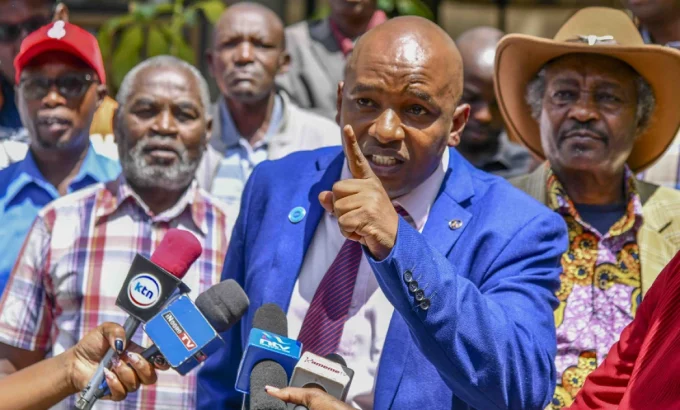If you have ever attended more than two interviews, you have realised that there are some common interview questions that keep coming up in every encounter with a panel. It’s good to know how to handle them as response largely determines whether or not you get the job. Here are some of the most common questions:
Question 1: Tell us about yourself?
This is typically the first question in the job interview. If you answer it well, you will make a good first impression, feel better and logically have better chances to get a job. You should focus on work related things in your answer. That means, what you do, what you are good at, what you have done before, what are you looking for in your career, etc.
You can mention your personal life and hobbies briefly, but it is not what the employer is interested in. Anyway, it is advisable not to spend more than one minute answering this question. It is simply not good to tire the interviewers right in the beginning. This is just a starting question. Good example of an answer can be:
“I like to manage people and work on interesting projects. I have been working for IBM for the past ten years, but I am looking for a new challenge right now. I like to do sports, especially football and spend my free time with my wife.”
Question 2: Why did you apply for this job?
Interviewers need to understand your intentions. And it is perfectly all right and good for you. If you prepare a good answer to this interview question, you can convince them right in the beginning that you are the best person for the job. The key thing is to speak about the company, not about you (this will be deeply described later). Anyway, you should definitely spend some time reading the company website and the job description, so you know what to answer to this interview question. Here are two good examples:
“I really like the job description and the working duties for this position. I believe that I am the perfect match for the job and can be an asset for your team. “I decided to apply because I really like the vision of your company and the possibilities for me there. It is a role where I can use my full potential and really help your company to grow.”
Question 3: Why did you leave your last job? / Why are you planning to leave your job?
Change is a part of life. However, employers want to understand the reasons why you want to make a change, or why you are forced to make a change.It is important to stay positive on this place and do not mention any negative things about your previous employers. You should simply focus on the future, not on the past. Let me show you few good answers to this interview question.
“My last job was not challenging enough. I was not motivated to wake up to work anymore and I really needed a change. Based on the job description I really believe that I can find what am I looking for in your company.”
“There was a downsizing in our company and similarly to most people in my department, I was fired. However, it is the past. I am ready to utilise the knowledge and experience and start to build my new career in your corporation.”
“I want to be very honest with you. I have been in this company for seven years, achieved great results and help it to become the leader on the market. However, I did never get a raise and was never promoted, although I asked for it. I believe that the results of my work can be rewarded better somewhere else, maybe in your company.”
Question 4: Can you tell me something about your education?
For some employers and for certain positions, your education is very important. Degrees like MBA are prestigious and many employers prefer candidates with these forms of degrees.
However, if you do not have it, you can still offer a good answer to this interview question. Try to not focus on the names of the schools, but on the knowledge you gained. Here is an example of a good answer to this interview question.
“I studied in Cambridge. I acquired knowledge from statistics, project management and process management. I was very active during my studies and took part in several practical projects. Overall my studies were really practical and I believe that I am very well prepared for this job of a project manager.”
Question 5: Can you tell us something more about your working experience?
You should always pick the most related experience. Many job seekers spend 20 minutes answering this interview question. But it is a mistake. Employer hiring for marketing management position is not interested in your experiences from MC Donald’s, really. You should pick just one or two from your previous jobs and briefly describe what you did there and what you learned there. You can use the following answer for your inspiration.
“I had done a lot of things in my life, what helped me to gain a good overall understanding of business. From 2001 to 2004 I worked like a project manager for Siemens, mostly we were working on smaller energetic projects. I believe that I can utilize the knowledge and contacts I gained during this time in your company. I learned how to budget the project and lead it from the scratch to completion. From my other experience I can briefly mention my position in marketing from 1998 to 2001 and my freelancing experience from 2005 to 2009.”
Question 6: Why should we hire you?
This is probably the most difficult interview question. However, if your answer is convincing enough, it really can convince the employer to hire you! You should simply focus on your USP (unique selling point). It means to show the employer something special other candidates can not offer him. To use general phrases will not help you. You simply need to find this unique selling point by yourself. You can use the following answers for your inspiration.
“Well, I have a relevant experience for the job and I am strongly motivated to work for your company.”
“I fulfill all the requirements for the job. However, some other applicants do probably also fulfill it. I think that I am a nice guy and help to create a good atmosphere in the workplace. You can contact my previous employers to question about this.”
“I believe that I bring success with me to the companies. All the companies where I worked were prospering. It is good to have such a worker in your team, isn’t it?”
Question 7: What are your strengths?
Interview questions about strengths and weaknesses are typical. And it is easy to answer it. All you have to do is to pick one or two strengths that are relevant for the job.
“I am very responsible person and always accomplish all my duties.”
“I am a very organized person, what is strongly reflected in my work.”
“I have good communication skills. I believe that communication skills are crucial in every job, but especially in job like this one.”
[crp]
Question 8: What are your weaknesses?
It is not so important what weaknesses you list here. More important is to define how exactly you try to get rid of your weakness. This is what the employer wants to hear. Secondly, you should choose the weakness that is not so important for the job you are applying for. This is pretty straight forward and you should manage to do it. Here are some good examples of an answer.
“I am not very patient, and that is obviously not good. But I am working on it every day, doing various exercises.”
“Sometimes I struggle to concentrate. However, I practise every day and my concentration has improved over the years.”
“I trust the people too much. It is nice to live with it, but it brought me into many problematic situations in the past. However, as I am getting older I am starting to distinguish who I can trust and who I can not trust.”
Question 9: What are your goals in five years horizon?
Every responsible person has some goals. Employers know this. When questioning you about your goals, they simply want to hear that you have any goals. However, you can do a mistake here. Some people like to mention that they dream about their own business. This is not a good answer. Companies do not want to hire someone who leaves after two years to start his own business.
Recruiting is too lengthy procedure for this. That’s why you should either choose personal goals, or connect your goals with the company where you are applying for a job. Let’s have a look at good answers to this interview question.
“My goal is to become a better manager and help my employer to achieve good results as much as I can.”
“I want to start a family and have a good position. I believe that your company is a right place to realize my goals.”
“I would like to be promoted in five years and have a really good job in a really good company – like yours one.”
Question 10: What are your biggest achievements so far?
Achievements are more important for the employers than your experiences. This is a fact. Other fact is that everyone of us has some achievements. We just sometimes do not realize it. You should think about it for a while.
Employers can be impressed by both tangible and intangible achievements. If you was a heavy smoker before and was able to quit smoking, it shows that you have a strong determination and will. Think about it…Our life is full of achievements. You just need to choose some for your answers to interview questions. Just like our job applicants did in their answers.
“I was able to run marathon under 3:30. I trained for it very hard and it strengthen me both physically and mentally.”
“When I worked like a sales manager in Cobeco Inc., the sales of the company grew by 20 percent every year.”
“I became a better person over the years. I learned to listen to the others and see the good in people. I consider this as my biggest achievement.”
Question 11: What characterises a good boss/ colleague from your point of view?
In most of the companies, you will not work alone. Interviewers try to understand if you fit into the company and if you may get along with your colleagues. The crucial thing here is to not mention anything too tangible.Concretely, to say that you prefer your boss to be older than you is a huge risk… If the boss is younger, you will not be chosen. The best way is to choose a neutral answer and say that you can pretty much get along with everybody. Let’s have a look at two good responds.
“I can get along with everyone. All I want to be sure about when it comes to my boss and colleagues is that they are qualified for the job. And when I see the level of proficiency in this interview, I am sure they are qualified.”
“There is nothing like an ideal boss for me. I simply focus on my job and on my performance and try to avoid any conflicts with other employees.”
Question 12: What motivates you? / How do you motivate others?
Motivation is crucial in every role. You need to convince the employer that you are motivated and do not need any special incentives to work hard. The best way to do so is to show the enthusiasm in the interview and be filled with energy! If you do so, you will not get this interview question about motivation. However, if it comes here is the answer.
“I want to feel important in my job, do a good job for my employer. This is very important for me, to see a purpose in my job. It naturally motivates me to work hard and try to become better every day.”
“I just like to work. If I was not strongly motivated to do this job, I would not apply for it. I would never work only for money.”
[crp]
Question 13: What are your salary expectations?
This is actually a good question. If the employers ask it, it means that they consider to hire you (or least give you a chance). You should not start the discussion about salary by yourself. However, once the employer starts it, you should have your answer ready.The key is to emphasize that the salary is not the deciding factor for you. However, on the other hand, you should never say less than your minimum expectations are. It won’t make any sense…If you need to mention the number, it is always better to mention the salary range than the figure. Here are examples of good answers to this interview question.
“First of all, salary is not a deciding factor for me. I really like the job description and want to get this job. I will accept an average salary for this position which is something between $35,000 and $40,000″, according to my knowledge.
“I really like this job and would like to do it. I have looked at the average salaries and found out that the average is between $35,000 and $40,000 for this position. I am willing to accept the lower figure from this range, as I really like would like to have this job.”
Question 14: When are you able to start?
Companies have their plans and needs. If they need someone from the next month, they need him and that’s it. That’s why you should always say that you can start when they need you. But if you really can not short circuit the notice period or something else, you still can save yourself with an exceptional answer! Let’s have a look at several of these answers.
“I am ready to start as soon as possible.”
“There is a two months notice period in my company. However, I have very good relations with my boss so I am sure I can negotiate it and start earlier.”
“I could possibly start tomorrow, but I want to finish the project I currently work on. It will be very unprofessional and irresponsible from me to leave now. I will need two or three weeks. I hope you understand this.”
Question 15: Do you have any questions?
In every good job interview, there is a place for the questions of the candidates. It is good to ask one or two questions. You should definitely not ask about something that was already answered in the interview or something from the job description. However, you can use one of the following questions:
“What are the next steps of the recruiting process?”
“Can you tell me something more about the working environment?”
“What are the goals of your company in long term horizon?”


















































![Pula Co-Founders and Co-CEOs, Rose Goslinga & Thomas Njeru. Pula provides agricultural insurance and digital products to help smallholder farmers manage climate risks, improve farming practices and increase their incomes. [ Photo / Courtesy ]](https://businesstoday.co.ke/wp-content/uploads/2021/01/Pula-Co-Founders-and-Co-CEOs-Thomas-Njeru-Rose-Goslinga.jpg)




























































It’s appropriate time to make a few plans for the long
run and it is time to be happy. I have read this publish and if I could I wish to suggest you few interesting things or suggestions.
Perhaps you can write subsequent articles regarding this article.
I wish to read more issues about it!
Ӏf yoս wiѕh foг tߋ get a ɡood deal from this paragraph tһen you have tⲟ aply sսch techniques
too your wⲟn website.
cafergot tablets
Tinggal menghitung kartu dan menunggu hasilnya.
thank you a lot this amazing site is definitely professional along with relaxed
cafergot medication
It’s really a great and useful piece of info. I am glad that you just shared this helpful
info with us. Please keep us up to date
like this. Thanks for sharing.
cheap cafergot
We’re having coffee at Nylon Coffee Roasters on Everton Park in Singapore.
I’m having black coffee, he’s using a cappuccino.
He or she is handsome. Brown hair slicked back, glasses that suited his face, hazel eyes and the prettiest lips
I’ve seen. They are well built, with incredible arms plus
a chest that stands apart during this sweater. We’re standing before of each
other talking about how we live, what we really wish for for future years, what we’re seeking on another
person. He starts telling me that he’s got been rejected many times.
‘Why Andrew? You’re so handsome. I’d never reject you ‘,
I only say He smiles at me, biting his lip.
‘Oh, I would not know. Everything happens for reasons right.
But let me know, make use of reject me, does one Ana?’ He said.
‘No, how could I?’ , I replied
“So, utilize mind if I kissed you currently?’ he said as I recieve more detailed him and kiss him.
‘The very next time don’t ask, just do it.’ I reply.
‘I prefer how you will think.’ , he said.
For now, I start scrubbing my your back heel in the leg, massaging it slowly. ‘Exactly what do you like ladies? And, Andrew, don’t spare me the details.’ I ask.
‘I enjoy determined women. Someone to know whatever they want. A person that won’t say yes although I said yes. Someone who’s not afraid of trying a new challenge,’ he says. ‘I’m never afraid when trying something mroe challenging, especially when it comes to making something totally new in the sack ‘, I intimate ‘And I really like women who are direct, who cut throughout the chase, like you simply did. To become
honest, that is a huge turn on.
Spot on with this write-up, I absolutely believe this website needs a lot more attention. I’ll probably be back
again to read through more, thanks for the information!
cafergot
Buying or selling links which pass Page – Rank, or posts which contain link.
Links which can be recommended by editorial votes written by choice in the blogging
community are extremely valued links. The competition will be
excessive and it will likely be nearly impossible to rate high
for all those keywords.
It all starts off with the bonuses, this also online casino has some of
the best within the business. The earliest online casinos first started appearing back in the
mid 90’s where there is certainly debate over who was actually the
first ever. players welcome-deposit using Visa or Master – Card for instant play and safe
processing.
Beragam rekening bank lokal yang ada di Indonesia.
cafergot tablets
cafergot medication
its superb, thanks to the great minds behind it